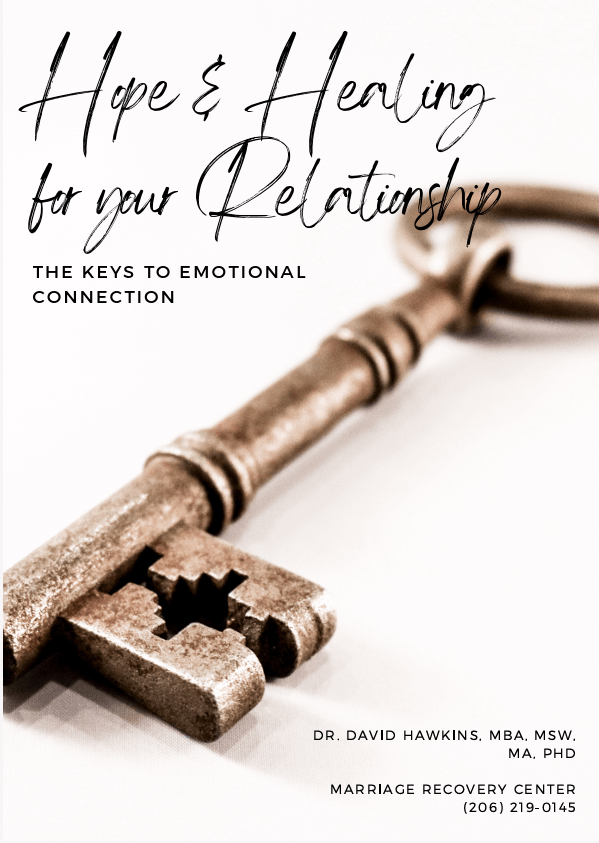Why You Can Never Trust a Narcissist? There are often times in a relationship where you have to compromise, negotiate and be flexible, but trust is one of those areas where there is no room for compromise. When it comes to relationships, trust and honesty are an all or nothing deal. You can either trust someone 100%, or you can’t trust them. There is no in between.
If you can only trust someone 90% of the time, you can’t trust them! Dr. Hawkins asks the question “Can a narcissist be trusted?” He talks about why dishonesty is yet another manifestation of a narcissist’s need to self-protect so they never have to feel bad about themselves or have their weaknesses exposed. Watch until the end to find out what you should do when you’re not sure if a person can really be trusted and why you can never trust a narcissist.
Why You Can Never Trust a Narcissist
Trust and honesty are fundamental aspects of any relationship. They form the foundations upon which strong connections are built. However, when dealing with a narcissist, trust becomes a precarious concept. Narcissism and deception go hand in hand, making it nearly impossible to rely on what they have to say. In this article, we will explore the reasons why trusting a narcissist is an uphill battle and discuss strategies to navigate this challenging situation.
Can You Believe a Narcissist?
Simple question, right? Can you trust what they have to say? Unfortunately, the answer is a resounding no. Narcissists are notorious for their lack of honesty and their penchant for manipulation. Their primary goal is self-preservation, and they will go to great lengths to protect themselves, even if it means deceiving others.
The Importance of Trust in Relationships
Trust and honesty are foundational aspects of every relationship. Without them, a partnership crumbles under the weight of suspicion and doubt. Trust is not a matter of percentages or fractions; it is an all-or-nothing concept. If trust is compromised, even partially, it becomes challenging to rely on the words and actions of the other person.
The Deceptive Nature of Narcissists
Narcissists are self-protective individuals. When faced with challenging or threatening situations, they prioritize their own interests above all else. This self-centeredness leads them to resort to deception and manipulation as a means of safeguarding their image and avoiding accountability.
Their self-protective behavior becomes habitual, making it their default response to any situation. Vulnerability, which is an essential aspect of emotional maturity in healthy relationships, is alien to narcissists. They are unwilling to admit flaws, struggles, or mistakes. Instead, they put up a facade of perfection and infallibility, further eroding trust.
Why You Can never Trust a Narcissist?
There are several reasons why trusting a narcissist is an exercise in futility:
- Self-Protection: Narcissists prioritize self-protection over honesty, making it difficult to rely on their words and actions.
- Lack of Vulnerability: Narcissists are unwilling to expose their weaknesses or admit their shortcomings, which is crucial for building trust in relationships.
- Habitual Deception: Their self-protective behavior becomes ingrained, making deception a consistent part of their interactions.
- Lack of Emotional Maturity: Narcissists lack the emotional maturity necessary to establish and maintain trust with others.
Strategies for Dealing with Narcissists
While it may be challenging to trust a narcissist completely, there are strategies you can employ to navigate this complex dynamic:
- Test and Verify: Instead of blindly trusting a narcissist, approach their words and actions with skepticism. Test and verify the information they provide to determine its accuracy and reliability.
- Confront and Hold Accountable: If you catch a narcissist being dishonest or deceptive, confront them about it. Make it clear that their behavior is not acceptable and that you expect honesty and reliability. Holding them accountable for their actions can serve as a deterrent.
- Offer Opportunities for Change: If you choose to give a narcissist a chance, clearly communicate your expectations. Give them an opportunity to change and grow, but be cautious and monitor their progress closely.
Conclusion
Trusting a narcissist is an uphill battle due to their inclination towards deception and self-protection. Trust and honesty are crucial pillars of any relationship, and without them, a partnership is built on a shaky foundation. By understanding the deceptive nature of narcissists and employing strategies such as testing and verifying information, confronting them about their dishonesty, and offering opportunities for change, you can navigate this challenging dynamic more effectively. Ultimately, it is important to prioritize your own well-being and make decisions that protect your trust and emotional stability.
To learn how we can help, reach out to us at (206) 219-0145 or info@marriagerecoverycenter.com to speak with a Client Care Specialist
Also read: What is the main problem Narcissist’s Victims Face
About Dr. Hawkins:
The internet is inundated with hyperbole and misinformation about narcissism, leaving many people confused and hopeless. Get the facts on narcissism and emotional abuse from someone who has been researching, writing about and treating narcissism and emotional abuse for over a decade.
Dr. Hawkins is a best-selling author and clinical psychologist with over three decades of experience helping people break unhealthy patterns and build healthier relationships.
He is the founder and director of the Marriage Recovery Center and the Emotional Abuse Institute which offers education, training and counseling for people who want to break free of, and heal from, emotional abuse. Whether the perpetrator of the abuse is your spouse, partner, parent, boss, friend or family member, we offer practical advice for anyone trapped in a toxic, destructive relationship.
In addition to narcissism & emotional abuse, you’ll learn about the lesser known forms of abuse, including covert abuse, reactive abuse, spiritual abuse, secondary abuse, relationship trauma and much more.








